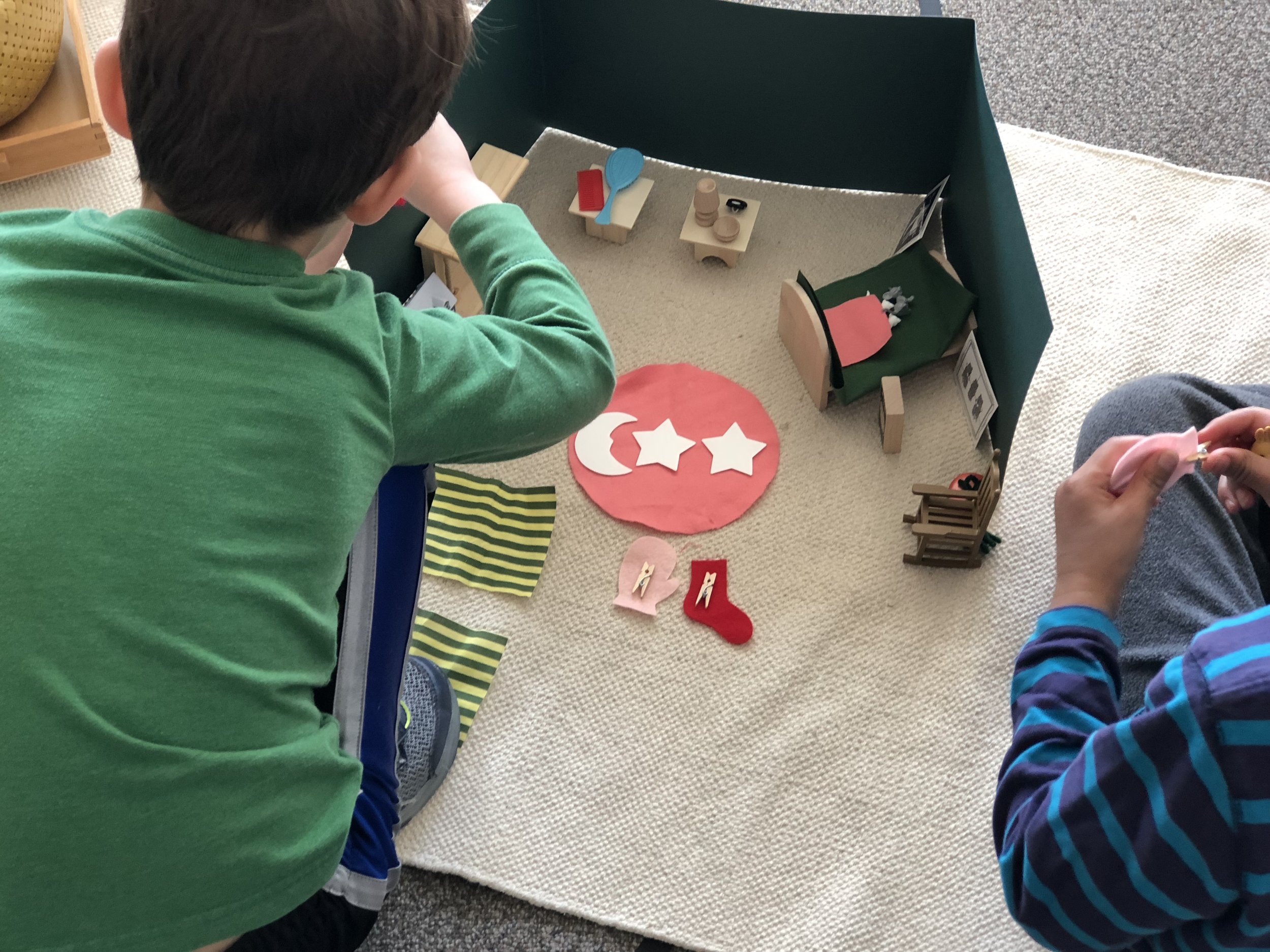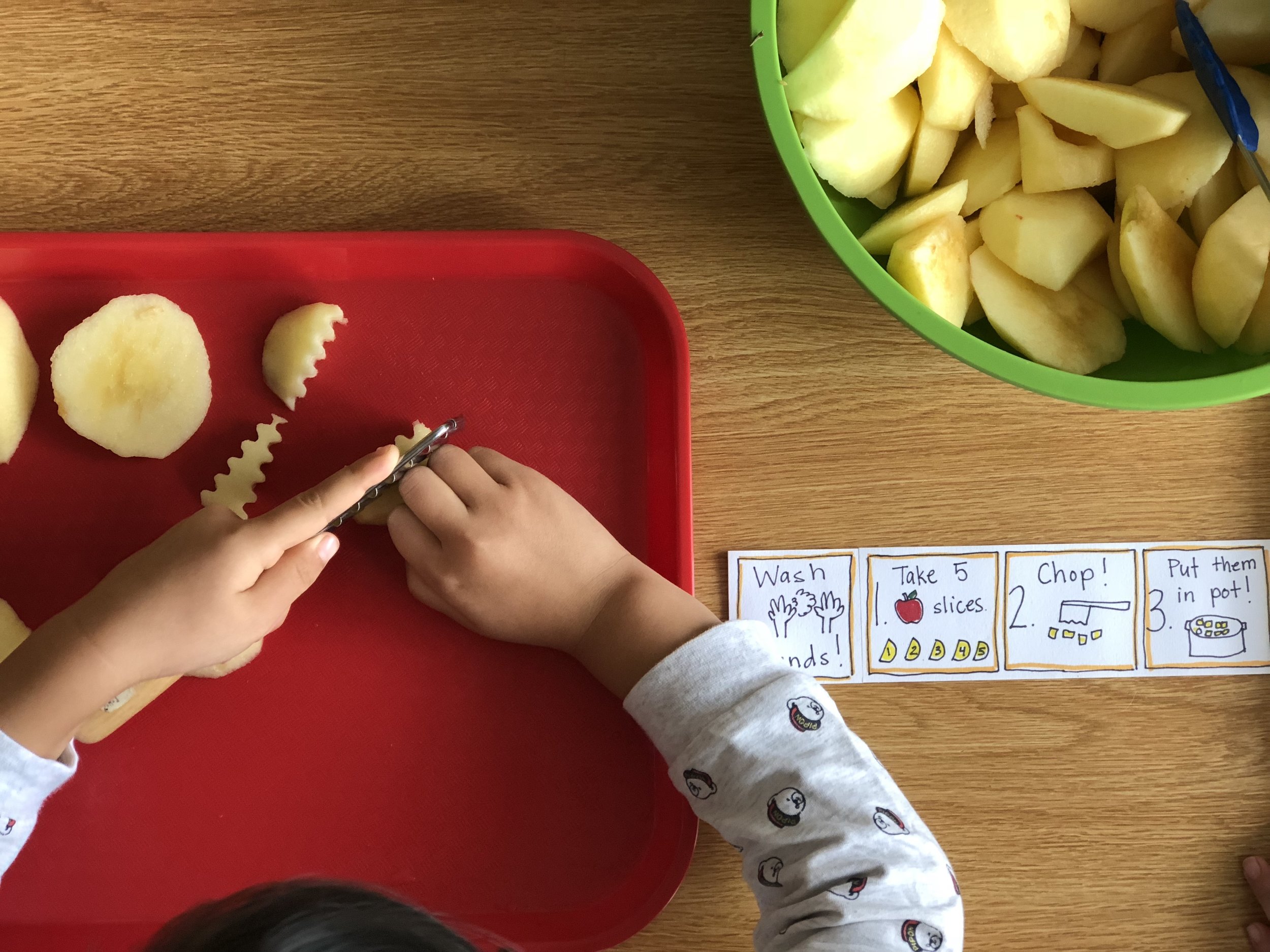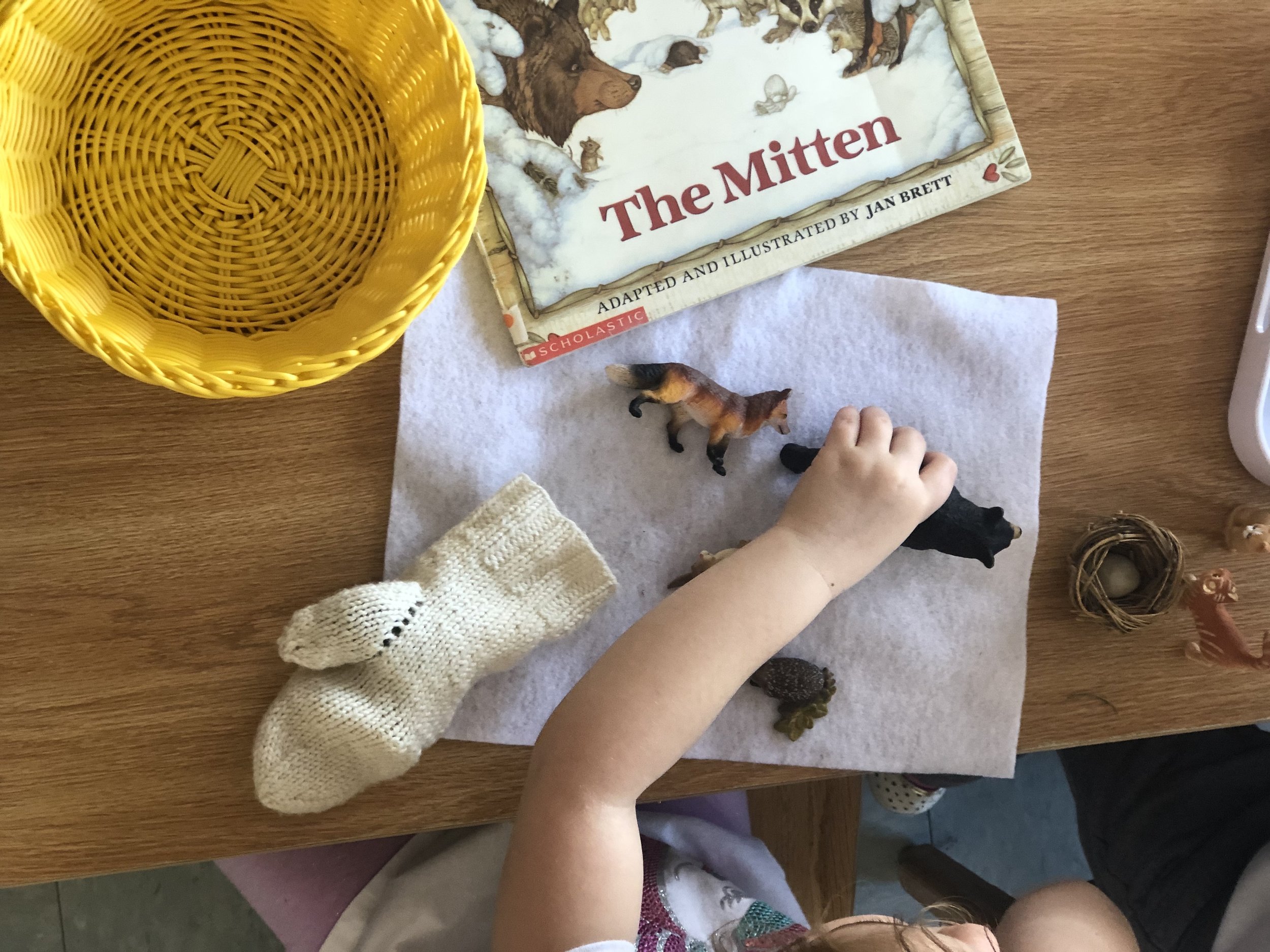Pretend Play in the Montessori Classroom
Pretend Play and use of the imagination is noted as such an important role in the Early Childhood world, but not so much in Montessori. In my classroom, instead of thinking witches, wizards and monsters - think Veterinarian, family, school. Pretend Play can be a bit controversial in the Montessori world - as the activities and foundation of the classroom are rooted in reality with concrete, purposeful work. I am completely on board with that, but, many children have imaginations that grow on their own - it is just within them. They can take those concrete, real, purposeful activities and transform them into something very imaginative - being a child who was like this myself, I want to nurture this if it can be nurtured.
In a Montessori classroom, we encourage and facilitate and sometimes even "set-up" activities that call to children's imaginations, but, the difference here is that they based in reality. During the 3-6 years children are still developing, they are still afraid of the dark, can be frightened of the villains in movies - and because of this, its often not helpful for us to feed their imaginations in these ways. Are they real? No, they're just pretend. But, at this age, children are not sure of that yet.
That is why in a Montessori School, everything is as it is - you can wash dishes, scrub tables, you can put on a baby sling to hold a baby doll, you can look at insects through magnifying glasses. Children don't have to guess about if these things are real, because they ARE real - they see it! And pretend play that is based in reality won't haunt your dreams at night.
Children all have imaginations and a lot will let their minds take them on adventures. It happens all on its own. Children will pretend to play family while washing our snack plates. We have baby dolls to care for and love - but they are there in order to stand in for a real baby, like in baby-wearing or baby-washing, we have a housekeeping section of the room which we refer to as Practical Life. At first glance, we could consider this whole area “Pretend Play.” Under closer examination though, the tasks are real, the pretend part comes from the child, and that is just the way we want it.




